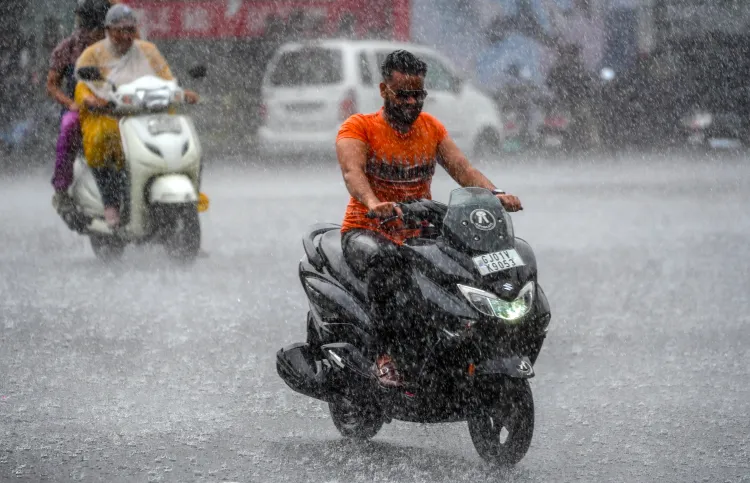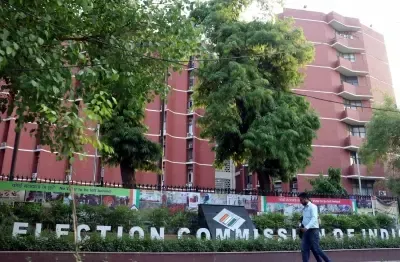How is the Minister Addressing Emergency Protocols Amidst Heavy Rains in Saurashtra and South Gujarat?

Synopsis
Key Takeaways
- Minister Bavaliya's proactive approach focuses on effective coordination during monsoon.
- Flood Control Cell is operational year-round from June 1 to October 1.
- Real-time data collection is crucial for timely alerts.
- Weather warnings are essential for public safety and property protection.
- Red and Orange Alerts have been issued for various districts.
Gandhinagar, June 18 (NationPress) Amid the intense rainfall affecting various regions in Gujarat, notably in Saurashtra and South Gujarat, Water Resources Minister Kunvarji Bavaliya conducted a visit to the Flood Control Cell at the State Water Data Centre located in Sector 8, Gandhinagar. This visit aimed to evaluate the state's readiness for the current monsoon season and to issue directives aimed at reducing rain-related damages.
During a review meeting with key officials, Minister Bavaliya stressed the importance of proactive collaboration between departments to ensure timely alerts are issued when local reservoir water levels rise due to upstream flow or local precipitation.
“In the event of heavy rain, we must provide timely warnings — such as high alert, alert, or caution — ensuring they reach District Collectors and administrative units for local-level action. This is vital for protecting lives and property,” he stated.
The minister also gathered updates through hotline communications with local authorities in Botad, Bhavnagar, and Rajkot districts, requesting real-time information on rainfall trends and reservoir water levels. He delivered specific guidance based on the data received.
As part of Gujarat’s monsoon preparedness as outlined in the Disaster Management Plan 2025, the Flood Control Cell operates fully every year from June 1 to October 1.
The cell remains operational 24/7, equipped with 12 hotlines and 14 satellite phones to gather and disseminate critical information statewide. The State Water Data Centre employs advanced systems like the Reservoir Data Management System to monitor rainfall and reservoir conditions through real-time, data-driven dashboards.
A presentation showcasing the operational procedures of the Water Data Centre and current rainfall statistics was provided to the minister.
Senior officials, including M.D. Patel, Special Secretary of the Water Resources Department, and B.H. Joshi, Superintendent Engineer, were present during the visit.
The India Meteorological Department (IMD) has issued a 'Red Alert' for nine districts in Gujarat, including Ahmedabad, Anand, Bharuch, Surendranagar, Morbi, Porbandar, Junagadh, Bhavnagar, and Botad.
These areas are anticipated to experience heavy to very heavy rainfall at multiple locations, with isolated instances of extremely heavy downpours.
Furthermore, an 'Orange Alert' has been issued for a wider range of districts — Banaskantha, Patan, Mehsana, Sabarkantha, Gandhinagar, Aravalli, Kheda, Vadodara, Surat, Navsari, Valsad, Rajkot, Jamnagar, Amreli, Devbhumi Dwarka, Gir Somnath, Kutch, and Morbi — forecasting heavy to very heavy rain across numerous regions.










